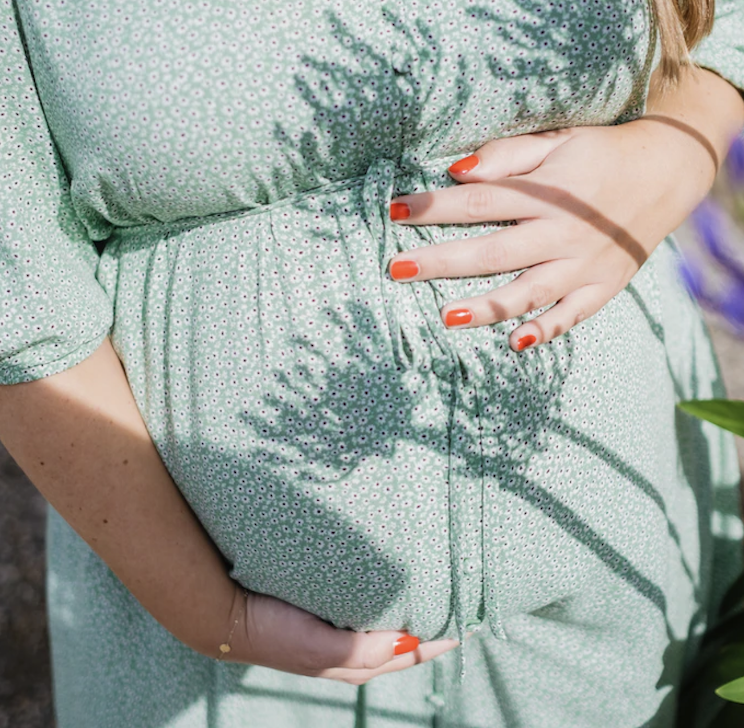Pregnancy is a time of immense change and heightened awareness of your body's signals. While the glow of anticipation is often talked about, the reality also includes unique physical demands. Among these, maintaining proper hydration stands out as vitally important, yet it's surprisingly easy to fall short, especially with the increased fluid needs of pregnancy. Knowing the subtle (and not-so-subtle) cues your body sends can be the key to preventing dehydration.
This guide, tailored for expectant mothers in Australia, will help you identify the top 5 signs that you might not be drinking enough water while pregnant and offer practical solutions to keep you and your baby optimally hydrated.
Why Dehydration Hits Harder During Pregnancy
Your body's water requirements significantly increase during pregnancy to support the remarkable physiological changes taking place. You’re producing extra blood volume, forming amniotic fluid, building new tissue, and processing waste for two. If your fluid intake doesn't keep pace with these demands, dehydration can set in more quickly and have a more pronounced effect compared to when you're not pregnant.
Common pregnancy symptoms like morning sickness (vomiting can lead to rapid fluid loss) and increased body temperature can further exacerbate the risk of dehydration.
The Top 5 Signs You're Not Drinking Enough Water While Pregnant
It's crucial to pay close attention to these common indicators that your body needs more fluids:
1. Dark Yellow or Infrequent Urine
This is often the earliest and most reliable indicator of your hydration status.
-
What it means: When you're well-hydrated, your urine should be pale yellow, almost clear. If your urine is dark yellow, amber, or has a strong odour, it means your kidneys are trying to conserve water by concentrating waste products.
-
Why it's critical in pregnancy: Infrequent urination (fewer than 3-4 times in a day, or not needing to go for several hours) also signals that your body is holding onto fluid. This can increase your risk of urinary tract infections (UTIs), which are more common and can be more problematic during pregnancy.
2. Persistent Fatigue and Dizziness
Pregnancy can bring its own share of tiredness, but persistent and unusual fatigue, especially when combined with lightheadedness or dizziness, can point to dehydration.
-
What it means: Dehydration causes a drop in blood volume, which can lead to lower blood pressure and reduced blood flow to the brain and muscles. This results in feelings of sluggishness, tiredness, and lightheadedness, particularly when standing up quickly.
-
Why it's critical in pregnancy: Dizziness can increase the risk of falls, which is especially concerning during pregnancy. If you’re already battling pregnancy-related fatigue, dehydration will only make it worse.
3. Dry Mouth, Dry Lips, or Excessive Thirst
While feeling thirsty is the body's natural alert system for low fluids, it's actually a sign that you're already mildly dehydrated.
-
What it means: A dry, sticky mouth, chapped lips, and a constant feeling of thirst are direct indicators that your body's fluid levels are insufficient. Your body is urgently signalling its need for water.
-
Why it's critical in pregnancy: Ignoring initial thirst signals means your body is already under stress. In hot Australian weather, this can quickly escalate to more severe dehydration.
4. Headaches and Muscle Cramps
Many pregnant women experience headaches, and muscle cramps (especially leg cramps) are also common. Dehydration can be a significant contributing factor to both.
-
What it means: When you're dehydrated, your brain tissue can temporarily shrink, pulling away from the skull, which can trigger headaches. Electrolyte imbalances that occur with dehydration can also lead to muscle spasms and cramping, as fluids play a crucial role in muscle function.
-
Why it's critical in pregnancy: Managing these discomforts through simple hydration is far preferable to prolonged suffering or reliance on medication, and it keeps your body systems functioning smoothly.
5. Constipation
Constipation is a notoriously common complaint during pregnancy, exacerbated by hormonal changes and iron supplements. Insufficient fluid intake will make it significantly worse.
-
What it means: Water softens your stools and helps them move smoothly through your digestive tract. When you're dehydrated, your body will absorb water from your intestines, leading to hard, dry stools that are difficult and uncomfortable to pass.
-
Why it's critical in pregnancy: Chronic constipation can lead to uncomfortable bloating, abdominal pain, and even hemorrhoids. Staying hydrated is one of the most effective non-medicinal ways to manage this issue.
Understanding Your Fluid Balance
To help you monitor your hydration, consider these approximate fluid intake and loss figures for pregnant women. This can vary based on individual metabolism, activity levels, and of course, the Australian climate.
|
Factor |
Approximate Fluid Volume (per day) |
Contribution to Hydration Status |
|
Recommended Intake |
2.3 - 3.0 Litres (from beverages) |
Positive: Directly contributes to bodily fluids. |
|
Water from Food |
0.5 - 1.0 Litre |
Positive: Hydrating fruits (watermelon, cucumber) & vegetables contribute. |
|
Urine Output |
1.5 - 2.5 Litres |
Negative: Normal daily fluid loss. Colour is key indicator. |
|
Sweat Loss |
0.1 - 1.0 Litre (or more) |
Negative: Varies significantly with activity, temperature, and humidity. Higher in hot Australian summers. |
|
Respiration Loss |
0.3 - 0.5 Litre |
Negative: Insensible water loss through breathing. |
|
Stool Loss |
0.1 - 0.2 Litre |
Negative: Normal fluid loss from bowel movements. |
|
Morning Sickness |
Variable, can be significant |
Negative: Vomiting causes rapid fluid and electrolyte loss. |
Note: These figures are averages and can vary widely. The goal is for intake to equal or exceed output, especially given the increased demands of pregnancy. Monitoring urine colour is paramount.
Practical Tips for Staying Hydrated During Pregnancy
Now that you know the signs, here are some actionable tips to ensure you stay well-hydrated throughout your pregnancy:
-
Carry a Reusable Water Bottle: Make it a habit to always have your HydroBump bottle with you. Seeing it reminds you to sip throughout the day.
-
Sip Constantly: Don't wait until you're thirsty. Take small, regular sips throughout the day rather than gulping large amounts at once, especially if you have morning sickness.
-
Start Your Day with Water: Drink a glass of water first thing in the morning to rehydrate after a night's sleep.
-
Flavor Your Water Naturally: If plain water is boring, add slices of lemon, lime, cucumber, ginger, or mint leaves for a refreshing twist.
-
Eat Water-Rich Foods: Incorporate plenty of fruits and vegetables into your diet, such as watermelon, strawberries, oranges, cucumbers, lettuce, and celery. Soups and broths also contribute.
-
Set Reminders: Use your phone to set alarms or download a hydration tracking app to remind you to drink.
-
Hydrate Around Meals: Drink a glass of water before and after each meal.
-
Mind Your Caffeine: Limit caffeinated beverages as they can act as a diuretic, increasing fluid loss.
-
Factor in Activity and Climate: If you're exercising or it's a hot day, consciously increase your water intake.
Conclusion
Staying well-hydrated is a non-negotiable aspect of a healthy pregnancy. By understanding the top 5 signs that your body might be asking for more water – from dark urine to persistent fatigue and headaches – you empower yourself to take proactive steps to safeguard your health and that of your baby. Listening to your body’s signals and making conscious choices to replenish your fluids is one of the simplest yet most effective ways to ensure a smoother, more comfortable pregnancy journey.
At HydroBump, we are dedicated to supporting expectant mothers in Australia with innovative hydration solutions designed for your unique needs. Our products are crafted to make reaching your daily fluid goals effortless, convenient, and stylish, ensuring you're always prepared to hydrate on the go. Prioritize your well-being with HydroBump, and give yourself and your baby the essential hydration you both deserve.
Don't wait for the signs of dehydration. Explore the range today and hydrate smarter throughout your pregnancy!
Frequently Asked Questions (FAQs)
While thirst is your body's way of signaling a need for fluids, it actually means you're already mildly dehydrated. It's best to drink consistently throughout the day to avoid reaching the point of feeling thirsty.
Yes, dehydration is a common trigger for Braxton Hicks (false labour) contractions. Staying well-hydrated can often help reduce the frequency or intensity of these contractions.
Your urine should be pale yellow or nearly clear if you are adequately hydrated. Dark yellow, amber, or strong-smelling urine indicates that you need to increase your fluid intake.
Morning sickness, especially if it involves frequent vomiting, can lead to significant fluid and electrolyte loss, making you much more susceptible to dehydration. It's crucial to sip small amounts of fluids frequently, even if you feel nauseous.
While plain water is ideal, you can also count milk, small amounts of 100% fruit juice, clear broths, and water-rich fruits and vegetables (like watermelon, cucumber, or oranges) towards your daily fluid intake. It's best to limit caffeine and sugary drinks.








